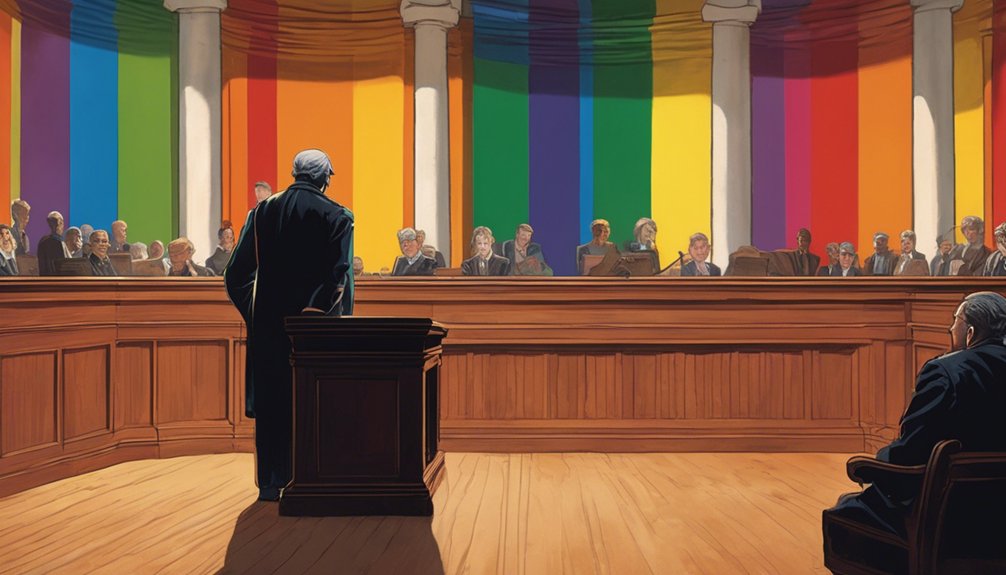From the Bench: Trump Nominees Signal a New Assault on Same-Sex Marriage


Although the Supreme Court’s landmark ruling in Obergefell v. Hodges established marriage equality as a federal right, recent developments signal a potential shift in the judicial landscape. Trump judicial nominees have expressed notable skepticism about the precedents set by Obergefell, raising concerns about the durability of same-sex marriage protections.
Several of these nominees have openly criticized the decision, framing it as a threat to religious liberty and suggesting it could be overturned in future cases.
Nominees have criticized Obergefell as threatening religious liberty and hinted at its potential reversal.
The appointment of conservative justices, such as Amy Coney Barrett and others aligned with Trump’s judicial philosophy, has intensified fears that marriage equality might be revisited. These justices generally emphasize states’ rights, which could translate into support for state-level bans or restrictions on same-sex marriage.
This stance directly challenges the federal protections established by Obergefell, which had uniformly guaranteed marriage rights across all states.
Judicial skepticism from Trump nominees reflects a broader ideological realignment within the federal judiciary, one that legal experts warn could lead to significant rollbacks of LGBTQ rights. The willingness to entertain legal challenges to Obergefell underscores this shift.
If cases questioning the constitutional basis of same-sex marriage reach the courts, conservative justices may be poised to reconsider, and potentially undermine, the precedent that has safeguarded marriage equality for nearly a decade.
This evolving judicial posture marks a critical juncture for LGBTQ rights, as the Supreme Court’s earlier affirmations face renewed scrutiny. The interplay between conservative judicial appointments and ongoing legal challenges will shape the future of same-sex marriage in the United States, highlighting the fragility of federal protections in the current political climate.
 News and AdvocacyNovember 14, 2025Rainbow Victories: 2025’s Most Pro-LGBTQ+ States Revealed
News and AdvocacyNovember 14, 2025Rainbow Victories: 2025’s Most Pro-LGBTQ+ States Revealed News and AdvocacyNovember 14, 2025Transgender Sanctuary States: Protecting Rights, Providing Hope
News and AdvocacyNovember 14, 2025Transgender Sanctuary States: Protecting Rights, Providing Hope Featured PostsNovember 13, 2025When Restroom Policing Backfires: The Hotel That Went Too Far
Featured PostsNovember 13, 2025When Restroom Policing Backfires: The Hotel That Went Too Far Featured PostsNovember 13, 2025Sex, Safety, and Seduction: A Trans Girl’s Guide to Hookups
Featured PostsNovember 13, 2025Sex, Safety, and Seduction: A Trans Girl’s Guide to Hookups